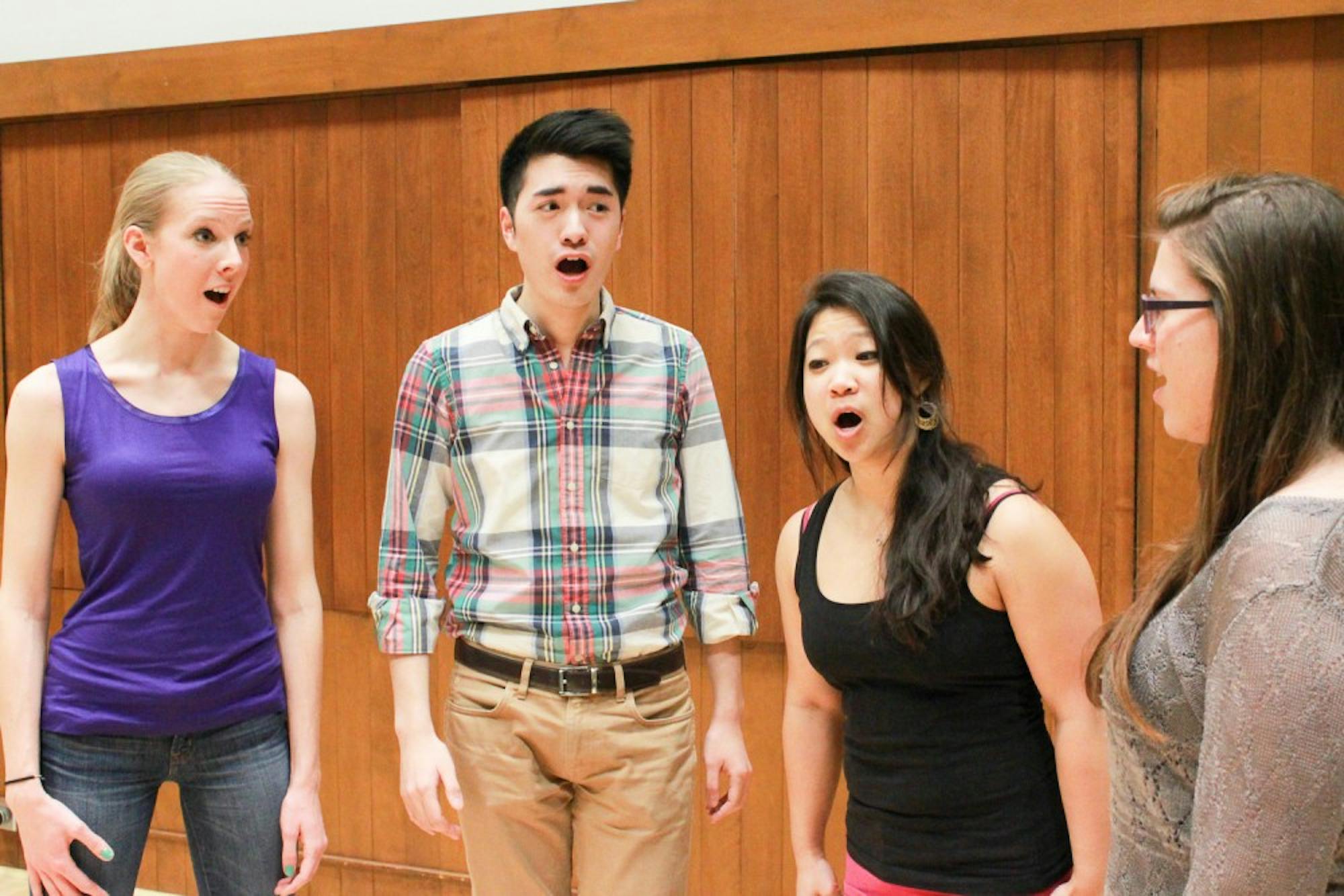Canta Chorale, a student-run choral-orchestral group that specializes in classical music, will perform its first concert on Sunday in Rollins Chapel. The repertoire will include 12 pieces from the 17th through 20th centuries.
Jonathan May ’14, a music major, organized Canta Chorale at the end of fall term, and the group practices three times a week for five to six hours at a time.
After Dartmouth Chamber Singers stopped performing in 2011, no other program filled its niche, May said.
“There is not a strong classical, chamber vocal music scene,” he said. “Canta serves as a space for my friends and me to sing music that we don’t really have an opportunity to explore in other settings.”
Once some friends expressed interest, May reached out to members of the Handel Society, a 100-member group of students, faculty, staff and community members who perform choral-orchestral works. He was able to find seven students with strong voices and the music-reading skills necessary for chamber music, he said.
The group includes a mix of undergraduate and graduate students, ranging from music to history to economics majors. The members include a mix of sopranos, altos, tenors and basses, as well as a organist and pianist, Richard Fu ’13.
Canta Chorale performs “churchy” music that requires half treble and half mixed voices, May said. The group prides itself on its varied repertoire, which includes Western classical music, like early baroque pieces by Henry Purcell and Antonio Lotti, romantic works by Felix Mendelssohn and Gabriel Fauré and even pieces from modern composers like Sergei Rachmaninoff and Morten Lauridsen.
The diversity of the repertoire and tight-knit group dynamics have been a draw for members, Tacke said.
“There is something really special about making music with other people,” Tacke said. “Plus, there is also a lot of beautiful music that is suited for smaller ensembles, and I was excited about the opportunity to explore that.”
The group chose its winter repertoire. Members scanned scores and learned parts during the break, returning to campus ready to practice.
“It’s really refreshing not to have to teach notes in rehearsals, and to be able to start working on musicality, phrasing and ensemble mechanics right away,” May said. “I think this calls for a high caliber of musicians, especially among students.”
The final repertoire gives each member some kind of featured role, Patrick Yukman ’14, a member of the group, said. One arrangement, for example, includes an eight-part harmony during which each of the eight members will sing a part.
While some students may consider choral arrangements, especially older religious pieces, dull or outdated, Yukman said students unfamiliar with the repertoire should enter the concert with an open mind.
“I hope the passion we bring to music is both evident and infectious,” Yukman said. “These pieces are among the best in the entire Western canon of vocal music, and I think we do them justice.”
Describing the music as “inspiring, almost ethereal,” May said he hopes the audience gains an “introspective and reflective experience” from the concert.
Canta Chorale plans to sing a series of free outreach concerts around the community this term, including a concert at an assisted living home in Massachusetts.
The article has been revised to reflect the following corrections:
Correction appended: January 24, 2014A previous version of the story said the group was coached by Nick Tacke, but Tacke is a member of the group, not a coach. The reference has been removed. The version also said that Jonathan May found eight other members, not seven, the correct figure. The figure has been changed.




